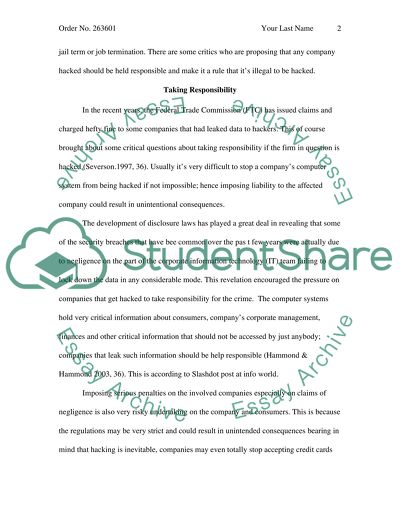Cite this document
(“Leaks and Hacks. When Is It Illegal To Get Hacked Essay”, n.d.)
Retrieved from https://studentshare.org/miscellaneous/1514534-when-is-it-illegal-to-get-hacked
Retrieved from https://studentshare.org/miscellaneous/1514534-when-is-it-illegal-to-get-hacked
(Leaks and Hacks. When Is It Illegal To Get Hacked Essay)
https://studentshare.org/miscellaneous/1514534-when-is-it-illegal-to-get-hacked.
https://studentshare.org/miscellaneous/1514534-when-is-it-illegal-to-get-hacked.
“Leaks and Hacks. When Is It Illegal To Get Hacked Essay”, n.d. https://studentshare.org/miscellaneous/1514534-when-is-it-illegal-to-get-hacked.


